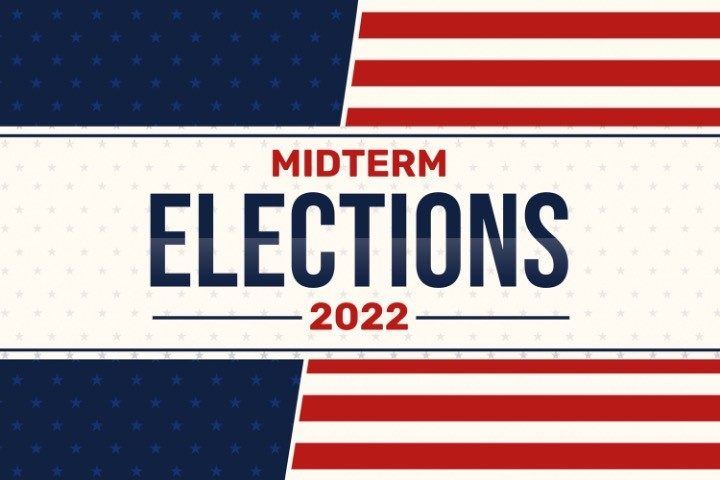
George Barna, founder of the polling company Barna Group and director of research at Arizona Christian University’s Cultural Research Center, was blunt in his assessment following the November 8 midterm elections:
We have reached the turning point, the moment when Americans must finally decide if they want government to rule their lives or if they will rule themselves.
I believe 2024 may be the point of no return: either it will be government of, by, and for the people — exercised through the nuclear family — or it will be a government of elites, not unlike the monarchy we left behind in England more than 200 years ago.
Based on the latest survey taken of nearly 4,000 adults, Barna concluded that the failure of the majority of “voting-eligible” people to show up last Tuesday was because neither political party spoke to their own interests:
The choice facing Americans is really not about Democrat or Republican rule; that’s a distraction.
It is about re-establishing the will, the vision, the rights, and the rule of the people. Right now we have the wrong people pushing the wrong actions for the wrong reasons.
Matters will only get worse unless the people are willing to invest in restoring their authority in this republic.
When asked if “individuals should have the rights and freedom to make legitimate choices rather than having the government make those choices for them,” those surveyed overwhelmingly wanted to be left alone. All across the political spectrum and party affiliations, three-quarters wanted to make their own decisions.
Almost 80 percent agreed that “political leaders cannot only focus on today. They must anticipate what’s coming and consider long-term possibilities in order to prepare us to successfully address future challenges.”
And they are persuaded that the country’s political system isn’t broken; it’s being dreadfully abused by power-hungry politicians. Over 70 percent agreed that:
Our political system is not broken; it is being abused by people who are in politics for their own benefit or personal interests.
The system still works but it requires officials who will protect our freedoms by applying constitutional principles rather than changing the system to satisfy personal preferences or ideological ideals.
This only works when the voting public is presented with clear-cut choices among competing candidates: those seeking power for power’s sake, or those seeking to serve their constituents. Said Barna: “That puts the burden on the citizenry to demonstrate the wisdom and courage to … empower those committed to serving the public.”
Following Donald Trump’s announcement for the presidency in 2024, Conrad Black, the founder and publisher of The New York Sun, wrote that Trump has tapped into many of those values American voters were seeking but not finding in the midterms. He wrote:
President Trump’s announcement of his candidacy to regain his former office was one of the outstanding political speeches given in the United States in the post-Reagan years. He jumped from being a grumbling re-litigator to an imaginative reformer….
In his presidential candidacy announcement address, Mr. Trump was temperate, focused on the issues, and took the lead in repositioning the Republican Party as an agent of positive change more than of vengeance.
Late, certainly, but apparently not too late, he did what critics had been urging, and more.
Trump followed the advice of those who, like Barna, have their finger on the pulse of the American voter:
Mr. Trump promised early on in his remarks that he would avoid the expression “fake news,” and as if to emphasize that he has turned a new page and listened to his critics, he did not use the phrase again. His criticisms of the press in the balance of his address were few, precise, and not overstated.
Oratorically speaking, it was a new Trump. It was a logical sequence delivered forcefully but without bluster and with none of the usual asides and expatiations that, however amusing, often have made him seem unserious and self-obsessed, and have been harmful to his credibility….
It was tactically and psychologically important for him to promise reform and not vengeance. He highlighted one of the many weaknesses in Democratic attacks upon him: The Democrats do not fear Trump-sponsored chaos or a Trump assault upon democracy; they fear exposure of their own misdeeds and hypocrisy.
Trump, according to Black, played to his strength: “He is not really a politician but entered the political world to make it better.” In one hour, wrote Black,
Donald Trump reminded the nation of his great strengths and by not displaying them, caused millions of people to begin to forget what caused them to fear or dislike him.
Whatever the political future may hold, and it is likely to be tortuous and contentious, Donald Trump revived his political fortunes….
Donald Trump has been underestimated before, and he has strained the patience even of long-time supporters, but he showed on Tuesday night his intuitive political brilliance, his indomitable personality, and his indestructible status as the evocative voice of profound and widespread, if often almost unspoken, popular political aspirations.
Whether Trump knew the results of Barna’s study is not known. What is known is that Trump largely tapped into many — if not most — of the reasons that half the “voting-eligible” public didn’t show up in 2022.
Now they have a reason to show up in 2024.



